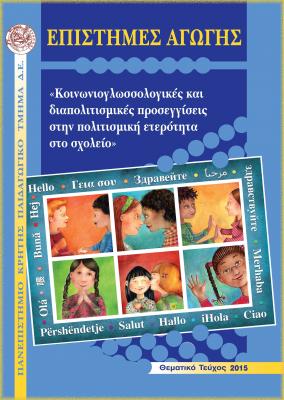Η γλωσσική συμπεριφορά αγγλόφωνων οικογενειών στην Ελλάδα: Το οικογενειακό και σχολικό περιβάλλον
DOI:
https://doi.org/10.26248/edusci.v2015i4.1662Keywords:
Language attitude, English-speaking families, Greece, high-status language, family language policyAbstract
The language attitude of immigrant families in Greece has been the focus of various studies, many of which have looked especially into Albanian families’ attitude and actions towards the maintenance of their ethnic language (Chatzidaki 2005; Gkaintartzi 2013; Gogonas 2009; Maligkoudi 2010). However, there are scarcely any studies in the Greek literature regarding the language attitude of families living in Greece whose L1 is a high status language, such as English. In the present study we aim to address this gap and examine the language attitude of non-Greek parents and children living in Greece towards the use of Greek, which is the dominant language of the host country, and towards English, which is the main language of children’s school education. In particular, those children attend two English language private schools in Athens where classes are held exclusively in English and where Greek is taught as a second language for five hours a week. For the purpose of our study, two questionnaires were employed, one for children and one for parents. These aimed to examine children’s and parents’ profile, their (bilingual) literacy, their competence in the two languages, children’s and parents’ language use, and parents’ language practices. The results of the questionnaires point to interesting differences between this study and previous similar studies in Greece with immigrants who speak lower status languages.


